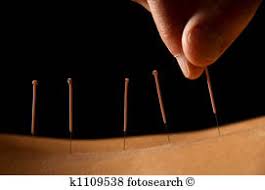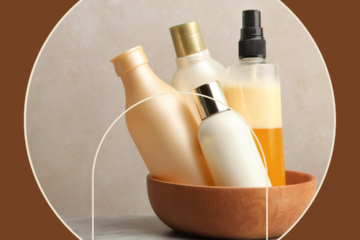Considered Accupuncture?

Acupuncture–But Is It Good For Me?
Sometimes when in pain we look for answers at the doctor, sometimes we look to a bottle of pills. Sometimes we question the mainline responses and investigate things a little more non-traditional. I am that person. When faced with surgery for a herniated disc, I wasn’t in a big rush to have surgery as suggested. Nor did I get steroid injections because of the numerous allergies and reactions I have to nearly everything.
I was in pain, as many are with low-back injuries. Most of my pain was in the knee and down the leg because of where my injury occurred. Because I cannot take much in terms of anti-inflammatory or pain medications, I learned several things:
- Pain changes over time
- Standard of care isn’t always good for everyone and who better than you to advocate for yourself faced with surgical risks.
- Physical Therapists and ice are your friend.
- Thinking outside the box can frustrate your doctor.
My chiropractor and the physical therapist encouraged me to research surgery vs. no surgery for herniated discs. They urged patience and helped me understand the poor core muscle tone I’d allowed to happen plays a role in a lot of back pain. I began exercising daily. I found relief.
I also researched Acupuncture. I had learned from good friends about their experiences. One friend with severe arthritis swears by the relief obtained from regular Acupuncture treatments, yet another has found significant migraine relief. My husband had tried Acupuncture for his arthritic back and didn’t believe it was helpful for his back, but was helpful for overall well-being. He was really skeptical so I considered his Acupuncture results a glowing recommendation.
Reviews of Acupuncture are mixed.
One of my favorite places for medical advice is the Mayo Clinic. Their article on Acupuncture is very thorough:
Acupuncture involves the insertion of very thin needles through your skin at strategic points on your body. A key component of traditional Chinese medicine, acupuncture is most commonly used to treat pain. Increasingly, it is being used for overall wellness, including stress management.
Traditional Chinese medicine explains acupuncture as a technique for balancing the flow of energy or life force — known as chi or qi (chee) — believed to flow through pathways (meridians) in your body. By inserting needles into specific points along these meridians, acupuncture practitioners believe that your energy flow will re-balance.
In contrast, many Western practitioners view the acupuncture points as places to stimulate nerves, muscles and connective tissue. Some believe that this stimulation boosts your body’s natural painkillers.
Why it’s done
Acupuncture is used mainly to relieve discomfort associated with a variety of diseases and conditions, including:
- Chemotherapy-induced and postoperative nausea and vomiting
- Dental pain
- Headaches, including tension headaches and migraines
- Labor pain
- Low back pain
- Neck pain
- Osteoarthritis
- Menstrual cramps
- Respiratory disorders, such as allergic rhinitis
Risks
The risks of acupuncture are low if you have a competent, certified acupuncture practitioner using sterile needles. Common side effects include soreness and minor bleeding or bruising where the needles were inserted. Single-use, disposable needles are now the practice standard, so the risk of infection is minimal. Not everyone is a good candidate for acupuncture. You may be at risk of complications if you:
- Have a bleeding disorder. Your chances of bleeding or bruising from the needles increase if you have a bleeding disorder or if you’re taking blood thinners.
- Have a pacemaker. Acupuncture that involves applying mild electrical pulses to the needles can interfere with a pacemaker’s operation.
- Are pregnant. Some types of acupuncture are thought to stimulate labor, which could result in a premature delivery.
No special preparation is required before acupuncture treatment.
If you’re considering acupuncture, take the same steps you would to choose a doctor:
- Ask people you trust for recommendations.
- Check the practitioner’s training and credentials. Most states require that non-physician acupuncturists pass an exam conducted by the National Certification Commission for Acupuncture and Oriental Medicine.
- Interview the practitioner. Ask what’s involved in the treatment, how likely it is to help your condition and how much it will cost.
- Find out whether your insurance covers the treatment.
Tell your doctor you’re considering acupuncture. He or she may be able to tell you about the success rate of using acupuncture for your condition or recommend an acupuncture practitioner.
What you can expect?
During an acupuncture treatment, your acupuncturist inserts very thin needles into specific spots on your body. Insertion of the needles usually causes little discomfort.
Each person who performs acupuncture has a unique style, often blending aspects of Eastern and Western approaches to medicine. To determine the type of acupuncture treatment that will help you the most, your practitioner may ask you about your symptoms, behaviors and lifestyle. He or she may also closely examine:
- The parts of your body that are painful
- The shape, coating and color of your tongue
- The color of your face
- The strength, rhythm and quality of the pulse in your wrist
This initial evaluation and treatment may take up to 60 minutes. Subsequent appointments usually take about an hour. A common treatment plan for a single complaint would typically involve one or two treatments a week. The number of treatments will depend on the condition being treated and its severity. In general, it’s common to receive six to eight treatments. However, if you’re like I am, after a month I get back in there because my body needs to put back into sync.
During the procedure
Acupuncture points are situated in all areas of the body. Sometimes the appropriate points are far removed from the area of your pain. Your acupuncture practitioner will tell you the general site of the planned treatment and whether you need to remove any clothing. A gown, towel or sheet will be provided. You lie on a padded table for the treatment, which involves:
- Needle insertion. Acupuncture needles are inserted to various depths at strategic points on your body. The needles are very thin, so insertion usually causes little discomfort. People often don’t feel them inserted at all. Between five and 20 needles are used in a typical treatment. You may feel a mild aching sensation when a needle reaches the correct depth.
- Needle manipulation. Your practitioner may gently move or twirl the needles after placement or apply heat or mild electrical pulses to the needles.
- Needle removal. In most cases, the needles remain in place for 10 to 20 minutes while you lie still and relax. There is usually no discomfort when the needles are removed.
Results
The benefits of acupuncture are sometimes difficult to measure, but many people find it helpful as a means to control a variety of painful conditions.
Several studies, however, indicate that some types of simulated acupuncture appear to work just as well as real acupuncture. There’s also evidence that acupuncture works best in people who expect it to work.
Acupuncture has few side effects, so it may be worth a try if you’re having trouble controlling pain with more-conventional methods.
Personally, I found that for a couple days after a treatment I would feel a little rundown and the third day was fantastic. After discussing this with my practitioner, she tweaked the treatment and now I feel great the next day.
But, Is It Good For Me? That’s my guiding principle. I have found acupuncture to be helpful. I know communicating with my practitioner and going into a session well-hydrated I have my best experience. Needle insertion when somewhat dehydrated feels a little like a mosquito bite. When properly hydrated, it’s painless. I have learned through talking to my practitioner that there are ways to “tweak” the treatments for best results. Communication and a reputable, educated and licensed practitioner are key.
A year after my disc herniation, I continue my exercises and acupuncture. If I don’t do anything stupid (like carrying heavy landscape rocks or grandchildren) I am pretty pain free. If I do stupid things, I will have the dull ache for a bit. My results are much like my counterparts who have had the surgery feel. For me it was the right choice.
